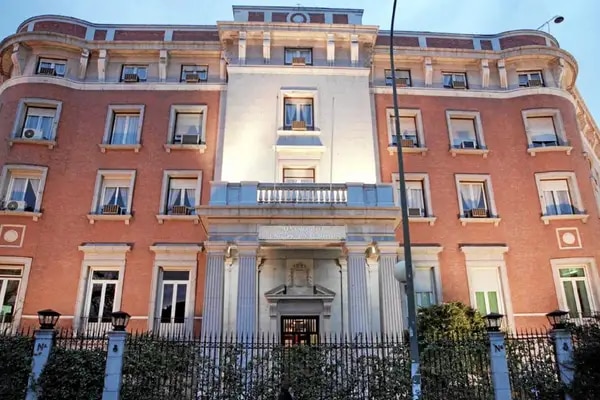The Diplomat
The Minister of Foreign Affairs, European Union and Cooperation, José Manuel Albares, expects the new Regulation on the Diplomatic Career, which aims to make the appointment of posts abroad, including ambassadors, more transparent and predictable, to be published before Christmas, according to diplomatic sources quoted by Europa Press.
The drafting of the regulation is motivated by the decision of the Supreme Court to annul the regulation approved in July 2014 by the government of Mariano Rajoy, on the grounds that it had not been subject to collective bargaining following an appeal filed by the Independent Union of the State Foreign Service (SISEX).
The process began with Arancha González Laya as foreign minister, who was succeeded by Albares in July 2021, but it has been delayed. The sources argue that a text of these characteristics entails difficulties since “it has to be submitted to several consultation processes that slow down the process”.
However, they emphasise that “the defect in the form of the previous one has been corrected, giving a hearing to the trade unions”, the main reason why the previous regulation was annulled.
The text, the sources have indicated, “already has the approval of the Higher Commission of Personnel” and now only the reports of the Office of Regulatory Quality, the Ministry of Finance and the Council of State are pending, before it is approved by the Council of Ministers, something that Albares is confident will happen before the end of the year.
In the final version of the regulation, which has not yet been made public, the contributions made during the consultation process have been studied and some modifications have been made with respect to the initial text that was published in November 2020 on the website of the Ministry of Foreign Affairs.
On the one hand, the regulation seeks to guarantee “the intervention in the Board of the Diplomatic Career of representatives elected by and from among the members of the different categories, ensuring that the interests and aspirations of all of them are duly represented”.
In this sense, the process by which the members of the board are elected is stipulated, as well as the functions of the board, the main one being to make a proposal with the names of the members of the Diplomatic Career who could occupy the available posts abroad, as well as to draw up a list of the posts to be filled.
According to the initial draft of the document, the members of the Board do not include representatives of the trade unions, as they have been demanding for some time.
The Association of Spanish Diplomats (ADE), the majority of the members of the Diplomatic Career, defends in statements to Europa Press that “when something works, there is no need to change it” and stresses that diplomats are happy with this advisory body, whose members they choose themselves and who therefore “look after their interests and avoid discretionalities” in the allocation of posts.
On the other hand, it details the necessary requirements for promotion between categories within the diplomatic career, making it clear that promotion to ambassador “is at the discretion of the Council of Ministers” at the proposal of the foreign minister, and pointing out that, although the post is “generally reserved” for diplomats, the government can appoint people who do not belong to this civil service group.
It also seeks to respond to one of the main complaints of members of the diplomatic corps, namely the advance notice with which they can find out about their new postings abroad so that they can prepare for their move to the country of destination -moving, housing, finding schools for their children -.
In this sense, the annual general call for applications for posts abroad, known in diplomatic jargon as ‘bombo’, is brought forward from February to October of the previous year. In this way, the definitive list with the posts assigned will be known in December, while the incorporation to the new post will take place as of 30 June.
In the absence of a final draft, the draft regulation also sets out the period in which diplomats should, a priori, be in their different posts, which are divided into categories according to the conditions of the destination countries, with Class A being the ‘easiest’ – generally European countries – and Class C Special being the most complicated.
It is also made clear that diplomats will not be able to chain posts abroad for more than nine consecutive years, nor will they be able to be on active service in Spain for more than eight consecutive years without a post outside the country.







